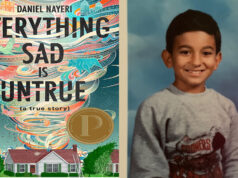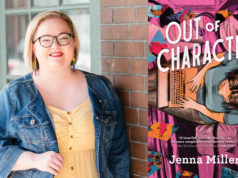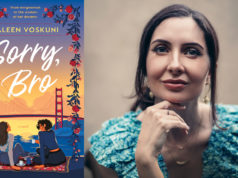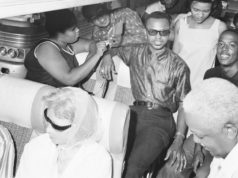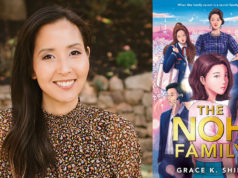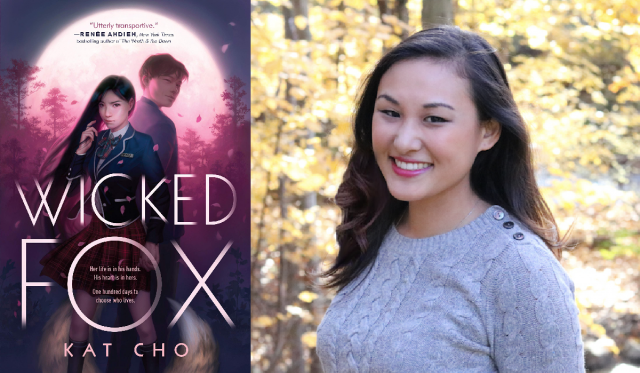

(Editor’s note: NonDoc’s Author Umbrella interviews up-and-coming writers, particularly authors of color, authors of disability and LGBTQ authors. The interviews have been transcribed and lightly edited for length and clarity.)
For this week’s Author Umbrella series, I interviewed Kat Cho, author of Wicked Fox. Her debut novel, published by Penguin Young Readers Group, hit shelves on July 25, 2019. She also co-hosts the Write or Die podcast with Claribel Ortega.
Wicked Fox is a story inspired by Korean mythology set in modern-day Seoul. Eighteen-year-old Gu Miyoung has a secret. She is a gumiho: a nine-tailed fox who must devour the energy of men in order to survive. But on the night of a full moon, Miyoung crosses paths with Jihoon, a human boy. She rescues him from a goblin attack. And, in the process, she loses her fox bead — her gumiho soul.
Miyoung and Jihoon develop a tenuous friendship that blossoms into something deeper. But when a young shaman tries to reunite Miyoung with her bead, the consequences are disastrous . . . forcing Miyoung to choose between her immortal life and Jihoon’s.
1) You’ve mentioned in prior interviews how you grew up with stories of the gumiho, but it was actually a dream that spurred your writing. Can you tell us about that dream?
I have a lot of ideas for stories, but I think the spark that starts me actually writing is a feeling or a distinct character. And, that does often come from dreams.
The book that got me started on the path [toward] publication came from a vivid dream I had where my family was descended from these ancient Korean warriors. It was very intense, and I remember I woke up crying. (Long-story short, in the dream someone I love dies because of my bad decisions). It was so intense I had to write it down, but that manuscript was a mess. I didn’t know how to cohesively write a good story then.
I learned over the course of many more manuscripts, and then wrote Wicked Fox.
There was no specific dream [that inspired] Wicked Fox. But I do think a lot of my scenes came from daydreams and feelings that I went through over the course of writing the book.
2) Readers have commented that Wicked Fox’s food descriptions make them hungry for Korean food. (Sidenote: You have a YouTube channel called Kat’s Kitchen, where you make things like homemade kimchi and bindaetteok, both of which look delicious!) What is you favorite dish from Wicked Fox, and what role do you think food plays in Wicked Fox?
My favorite dish from the book is kalbi jjim. It’s the dinner Jihoon eats with his halmeoni when they’re talking about the myth of the gumiho. It’s braised ribs in a thick sauce with vegetables, and it’s so delicious!
For me food means family and comfort and a connection to my roots. I mostly grew up in Central Florida, and there wasn’t a very robust Korean community for me to latch onto. So, my Korean identity was guided mostly by my family. And I think, often for kids, the place where our culture comes out the clearest is in the food our parents make for us that comes from our culture.
So, for me, Korean food is very integral to my identity. I used that in the book to show that food is where family and friends come together. That the dinner table is a communal place that can give comfort. (Which is also why Halmeoni is such a great cook — because she is a character that symbolizes family and love.)
3) Wicked Fox explores filial piety and the influencing dynamics of family, particularly in the relationships between Miyoung and her mother, Yena, and Jihoon and his grandmother. How have your own familial experiences influenced your approach to your characters?
It definitely has! I think my parents had expectations of me, but those expectations came from pride and love. However, I can’t deny that I internalized a lot of those expectations and let it drive me to some unhealthy places in my teens and early adulthood.
I think that in some ways I equated being proud of my heritage with being someone worth being proud of. And I wanted to be everything that my parents knew I could be. So, I pushed myself harder and harder to reach goals I knew would make them proud of my path.
But I think I also ended up going down some paths that just weren’t exactly right for me, and it took me a while to realize that and find my own space.
The great thing is that once I did, I had my parents’ full support.
I think I placed some of that inner-anxiety and internal sense of pressure on my characters. For Miyoung, it is her driving factor. For Jihoon, it is something he runs away from. But they both come to a realization by the end (I hope) that their extreme methods are unnecessary and there can be a happy medium.
4) Korean pop culture was a big inspiration for you as you wrote Wicked Fox, particularly K-dramas and K-pop. (You recorded a hilarious ‘K-Drama vs. Reality’ segment for Penguin Teen.) If Wicked Fox were made into a movie, who would be your dream K-pop artist/s to record the soundtrack?
K-Dramas were a big inspiration for author @KatCho while writing her debut novel #WickedFox, and it got her thinking about how beloved K-Drama tropes might play out in real life. So, we tried it out! Check out K-DRAMA VS. REALITY here! 📽️➡️ https://t.co/xDMEzN8Ouj pic.twitter.com/oVWaAb8qdh
— Penguin Teen (@PenguinTeen) July 31, 2019
I mean we’d have to get IU; she is Miyoung’s favorite idol! But I think I’d also throw in SHINee, BlackPink, G-dragon, Taeyang, BTS, Mamamoo, Exo, FT Island, and Punch.
5) You co-host the popular Write or Die podcast with your best friend, Claribel Ortega, who you also refer to as your #twitterwife. What inspired you guys to start a podcast about writing?
Found my #TwitterWife! #alaac19 has finally begun! #alaannual pic.twitter.com/cxkOSiZGQn
— Kat Cho Halloween name 👻👺🦊🇰🇷 (@KatCho) June 21, 2019
We kind of talk about it sometimes on the podcast, but Claribel actually started the podcast on her own first to drag me!
It all started because we were on a road trip together, and I had been on sub for less than a month. I was complaining that I thought it was over for me. (I don’t exactly remember what started this negative feeling – either my first rejection or just radio silence. Being on submission can be hell for an author).
Claribel pointed out that being on sub for a month was not a long time and that so many people had suffered for much longer (sometimes over a year) on submission. So, she started a podcast to prove how much suffering was the average and that all the “overnight success” stories we hear are either not the full story or the outliers in this industry.
It soon became a wonderful podcast that grew a community around it of struggling authors (with a focus on authors of color and marginalized authors) trying to succeed in an industry that is often stacked against us. When I joined as co-host about 6 months in, it was an amazing opportunity for Claribel and me to have earnest discussions with each other and our guests about the hard realities of publishing, and it seems people have been connecting with it.
It’s really important to us that we always present everything in the most honest way we can, which also means being honest about our own mental health and struggles when it comes to surviving in publishing.
6) What elements of Wicked Fox do you think would best appeal to Oklahoma City readers?
I hope they connect with the relationships. At the end of the day, all supernatural elements aside, the story is about connecting with other people and how sometimes we let our own fears or expectations stop us from having those meaningful relationships that will make us better people.









